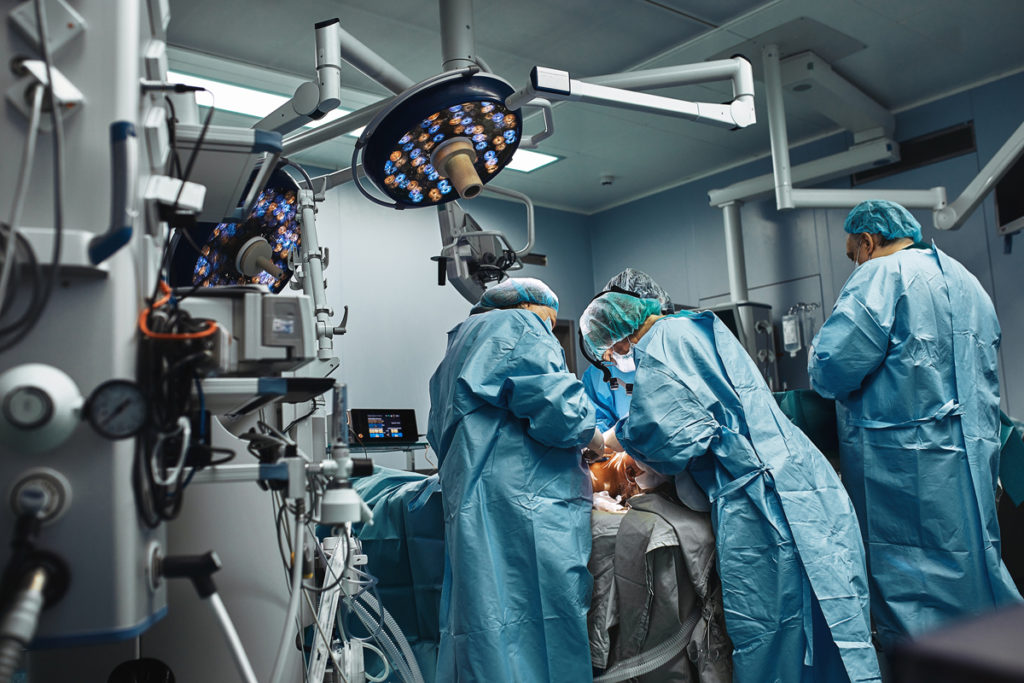Repertoire Magazine – June 2021
Ambulatory surgical centers (ASCs) have seen steady growth as the consistent rise in healthcare spending has shifted to outpatient care in the U.S. ASC procedures can cost from 35-50% lower than acute care procedures due to the different cost structure. The growth of ASCs is saving the U.S. healthcare industry an estimated $40 billion a year.1
ASCs handle more than 50% of all outpatient procedures in the U.S. and the overall number of procedures is estimated to hit 27 million this year with growth being driven by orthopedic, spine and cardiovascular procedures.1
Meanwhile, the COVID-19 pandemic serves as a net win for ASCs’ business volumes as hospitals experience some moderation or recalibration, and surgeons and patients are comfortable with procedures in ASCs. These ASC expansions present novel opportunities for medtech companies like Medtronic willing to fit their commercial models to the smaller and more nimble needs of ASCs.
“We’re transforming to drive greater innovation and value for our customers by using our portfolio breadth and global scale to ‘play big’ and ‘play small’ in the ASC space,” said Michael LaCasse, Vice President, Specialty Channels for Medtronic. “This is a much more customer-centric approach in which we show up as one Medtronic with a broad portfolio of offerings.”
Medtronic engages at the corporate headquarters level of the largest ASC-managed groups with a Medtronic enterprise leader, while it may call on the ASC facility level with a resource focused on a specific therapy or a portfolio of related therapies.
As ASCs continue to seize more healthcare profits, medtech companies like Medtronic are contracting with closer collaboration and a market segmentation approach. “Our ASC contracting strategy includes managed group contracts, IDN-owned or managed ASC contracts and ASC distributor programs that focus on specific product categories where distributors are best positioned to represent the technology,” said LaCasse.
New products and services are being offered to offset pricing pressure for a wide gamut of ASC needs. “We’re continuing to expand our reach and scale to meet the ever-changing needs of the market,” added LaCasse. Medtronic does that multiple ways: through live customer engagement with its sales force and dedicated ASC sellers, an expanding remote sales team, and leveraging the distribution sales channel.
“We rely on customer feedback, industry experts, and our own marketing research to deeply understand the current and future state of the ASC market,” said LaCasse.
Medtronic has also begun visual case coverage technology in close partnership with companies that specialize in deploying that innovative technology. Medtech companies like Medtronic can also offer inventory management in addition to its innovative partnerships to help ASCs maintain their smaller business model while focusing on their core business.
“We understand the challenges ASCs face today related to inventory space,” explained LaCasse. “Based on the therapy, we can help manage the ASCs’ required inventory in many ways.” Medtronic utilizes the distribution channel, the high level of service and frequency of delivery provided by distributors, consignment programs, and expedited shipping.
“We work closely with ASCs and distributors to create a solution that works best for their situation,” concluded LaCasse.
Medtech companies like Medtronic are adapting their sales and service models to most efficiently deliver the services that ASCs value.
“We’re driving operational efficiency by generating new patient pipelines, optimal care pathway design, and managing patient follow up. Those are areas where Medtronic can offer expertise to ASCs. These types of non-product opportunities are where we believe true partnerships and value are created,” said LaCasse.
The ASC channel is a growing and important customer channel, and its influence is set to increase. Medtronic plays big and plays small within the ASC channel through its comprehensive portfolio of products and services backed by clinical and economic evidence – from patient access support to medical education and tools for improving clinical efficiencies and outcomes. It can set an ASC apart with its dedicated team of experts and solutions.
“As we develop and deploy ASC solutions, we are focused on addressing the unique clinical, operational and financial challenges of ASC customers,” said LaCasse.
To learn more, go to: Medtronic.com/asc
[1] Bain & Company: Rise of ambulatory surgical centers offers new opportunities to medtech companies
